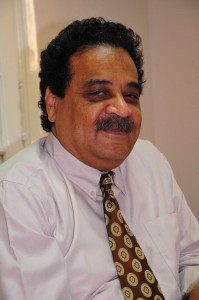
In the previous article, I highlighted the importance of belonging to a political party or movement when it comes to presidential candidates. The presidential candidate that emerges from a party has a certain framework within which he works along with thousands of other members and volunteers. However, a presidential candidate who does not belong to a political party or movement is not familiar with the concept of a framework based on voluntary work, and instead has to rely on paying others to get the work done or alternatively depend on the different state apparatus if the candidate has the approval of the state.
On a national level, and especially with presidential elections, it will be very hard to establish support based merely on a circle of relatives or friends. That is especially true since Egypt is unlike other countries in which politics is heavily based on established families, tribes or religious sects that are spread all over the country. Therefore the only two options are paid employees and state apparatus.
But what happens if the presidential candidate without a political party succeeds? Can the country be run without political support?
The president in a governing system that depends solely on him or even that is partially presidential, in my opinion, needs a political party to run the country. He is supposed to consult his political party before making any decision; therefore, he is really consulting the street. Supposedly, many decisions develop and grow from the dialogue and interaction process with the party and, by extension, the street.
There are multiple decision-making circles, or administrative and executive circles, that do not depend solely on political parties. Depending on the type of decision, these circles also depend on centres of strategic thinking or ministries and other state institutions. However, political parties remain a main source of decision making and one of the tools on which the state administration can depend in promoting a decision and getting the public opinion to support it. Parties can also help in facing any resistance or objection to the decision.
In the Egyptian Social Democratic Party, we have an initiative that encourages cooperation between governorates and local municipalities to solve citizens’ problems. In this framework, I head a delegation of local leadership who meet up with the governors in an attempt to inaugurate the cooperation and organise its mechanism. One time, in a meeting with one of the governors we were surprised to find that some of his aids boycotted the meeting because he had decided to move the microbus station from one place to another.
Because there was no political party to give the governor advice, his decision was not based on the people’s wishes and, therefore, the decision failed to garner support from regular citizens as well as from microbus drivers. This led to protests and traffic obstruction. Our representatives were able to solve the problem, by chance, within half an hour by moving the station to another suitable location. They also suggested other methods to alleviate the repercussions of the decision. Even more important is that the local leadership volunteered to help persuade the people to accept any decision that will benefit the citizens and the city.
Even for a decision as simple as moving a microbus station, it needed political backing in order to support the authorities and defend the decision. What about the more difficult decisions that could require citizens to make compromises?
We have to learn from history. Abdel Nasser considered political parties to be weak or corrupt and to be lacking popularity and therefore he eliminated the political scene. He soon realised that running the country needed political support and therefore he founded the Tahrir Organisation party which then became the National Union party, which, in turn, became the Socialist Union party. The Socialist Union then led to the formation of other parties such as the Misr Party and the National Democratic Party.
We are in a similar situation, where people are calling current parties weak, corrupt and elitist. Therefore, it seems as if some of Al-Sisi’s supporters are bent on convincing him to form a new political party. They completely forgot that Abdel Nasser was able to garner public support through several policies such as agriculture reform, insurance and supporting the Soviet Union. The parties he created failed in creating any administrative decisions as the members of these parties were the state’s officials and the political parties became more of a political decor for the government.
The parties became an appendage to the state apparatus especially the security ones despite several attempts to turn them into functional political parties. All of the trials made by Abdel Nasser, Al Sadat and most recently Gamal Mubarak failed because they weren’t really trying to create a political party but rather one that could help them rule within the state apparatus.
It is said that some of Al-Sisi’s political advisors, some of them are more than 90 years of age, insisted that he does not offer the public a political programme or campaign. It seems that they are insisting on hollowing out the political scene in the country. If this happens, the country will suffer for many years, and if Abdel Nasser-with all his popularity- failed to create a functional political party, it is doubtful that anyone else will succeed especially under today’s circumstances. I finally highlight the fact that a country cannot be run without political support and that the security apparatus cannot be substitute for a political party.



